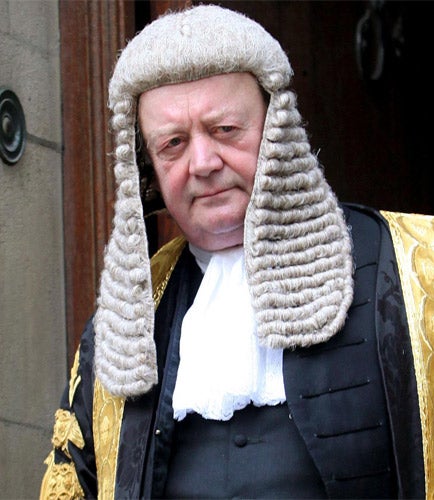Clarke first off the blocks with departmental cuts
Minister earns right to judge where other savings must be made

Kenneth Clarke, the Justice Secretary, is expected to play a key role in deciding where spending cuts will fall in other government departments after impressing the Treasury with his own cost-cutting plans.
The former chancellor is likely to be among the first ministers to settle his own departmental budget for the next four years in talks with the Treasury. He intends to close 103 magistrates' courts and 54 county courts that are underused or inadequate, thereby saving £15.3m a year in running costs and £21.5m on maintenance.
As chancellor, Mr Clarke imposed a squeeze on public spending before the 1997 election. Although Labour stuck to his limits for two years after winning power, he admitted later that the Tories would have breached them if they had won the election.
The Chancellor, George Osborne, will offer ministers who agree their budgets a place in the Cabinet "star chamber" to resolve disputes over the average 25 per cent cuts demanded of all departments except health and international development, whose budgets will rise. Mr Osborne has hinted that schools and defence may escape with a smaller reduction, which would put greater pressure on other areas. Ministers will have to submit draft budgets by 29 July and haggling with the Treasury is expected to climax in September. Mr Osborne will announce the results of the comprehensive spending review on 20 October.
The "star chamber" is chaired jointly by Mr Osborne and Danny Alexander, the Liberal Democrat Chief Treasury Secretary. Other members so far are the Foreign Secretary, William Hague, and Cabinet Office ministers Francis Maude and Oliver Letwin.
Yesterday, the Cabinet launched a £1bn "regional growth fund" to help areas at risk of being affected by the cuts. Private companies will be eligible for grants if they can show schemes will bring in investment and promote sustainable jobs and growth. The Deputy Prime Minister, Nick Clegg, said: "While we sort out the nation's finances we can also help to foster a thriving and more balanced economy so no region or community gets left behind. Alongside our commitment to waive some employment taxes for new businesses starting up in targeted regions of the country, this fund can make a real difference to companies during difficult times."
He announced plans for local enterprise partnerships, bringing councils and businesses together, to replace the regional development agencies, which are being abolished.
Ministers are sensitive to criticism that the emphasis on cuts means they have no "growth strategy". The Cabinet, meeting in Bradford, discussed the importance of rebalancing the economy and generating private- sector jobs, particularly in regions more reliant on the public sector.
Join our commenting forum
Join thought-provoking conversations, follow other Independent readers and see their replies
Comments
Bookmark popover
Removed from bookmarks